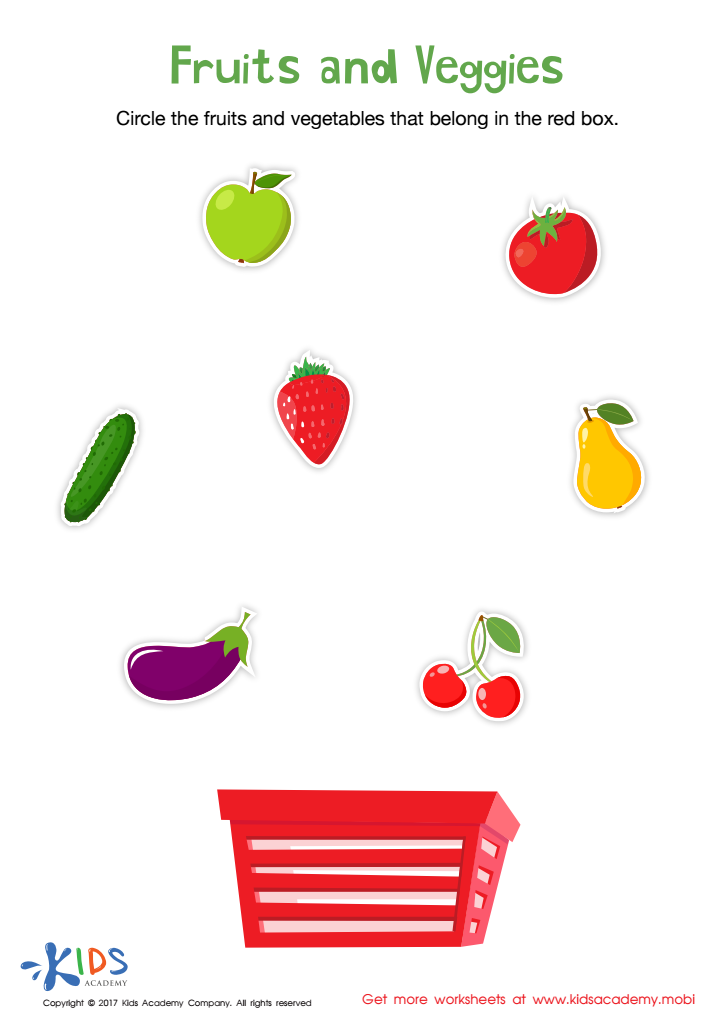Sorting skills Normal Math Worksheets for Ages 3-4
7 filtered results
-
From - To
Discover engaging sorting skills math worksheets designed for children ages 3-4! These printable resources will help young learners identify and categorize numbers, shapes, and objects, fostering essential critical thinking and problem-solving abilities. Our worksheets feature colorful visuals and interactive activities that make learning fun and enjoyable. By practicing sorting skills, preschoolers gain foundational math concepts while enhancing their cognitive development. Encourage your child's early math success with these educational tools that are perfect for home or classroom use. Download our sorting skills worksheets today and support your little one's journey to becoming confident mathematicians!
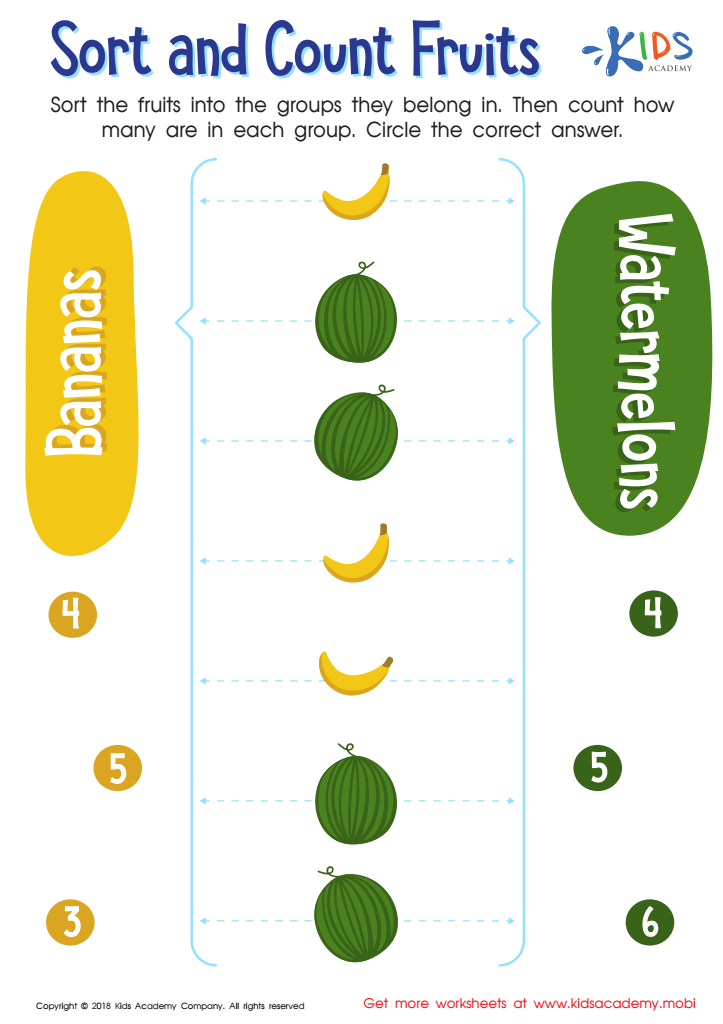

Sort and Count Fruits Worksheet


Sort and Count to the Moon Worksheet
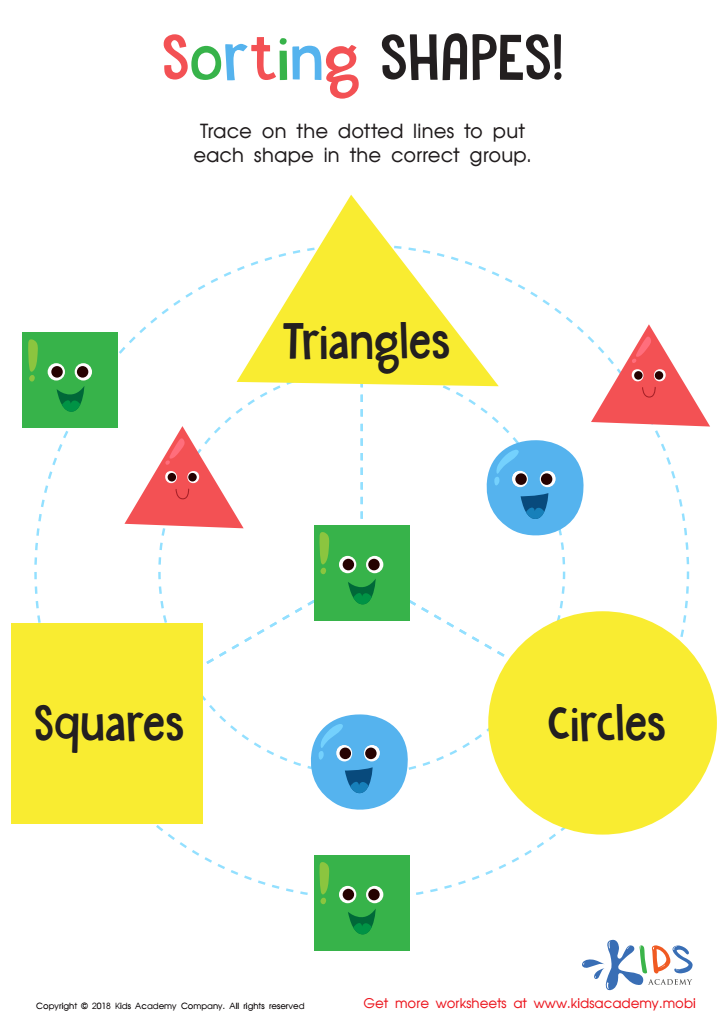

Sorting Shapes - Part 3 Worksheet
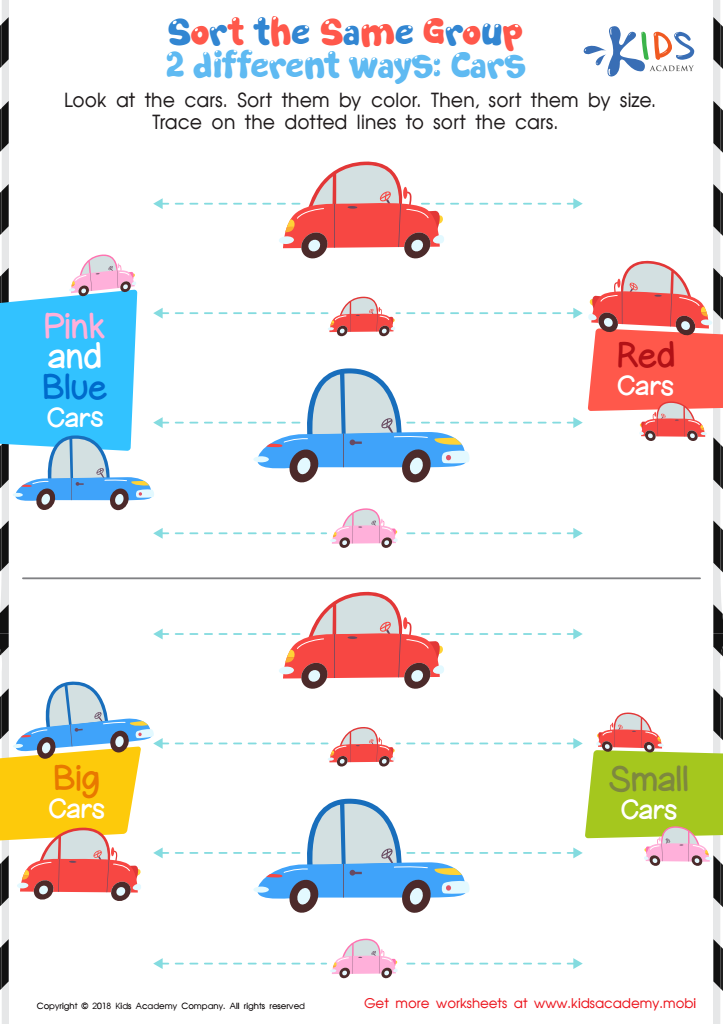

Sort the Same Group 2 Different Ways: Cars Worksheet
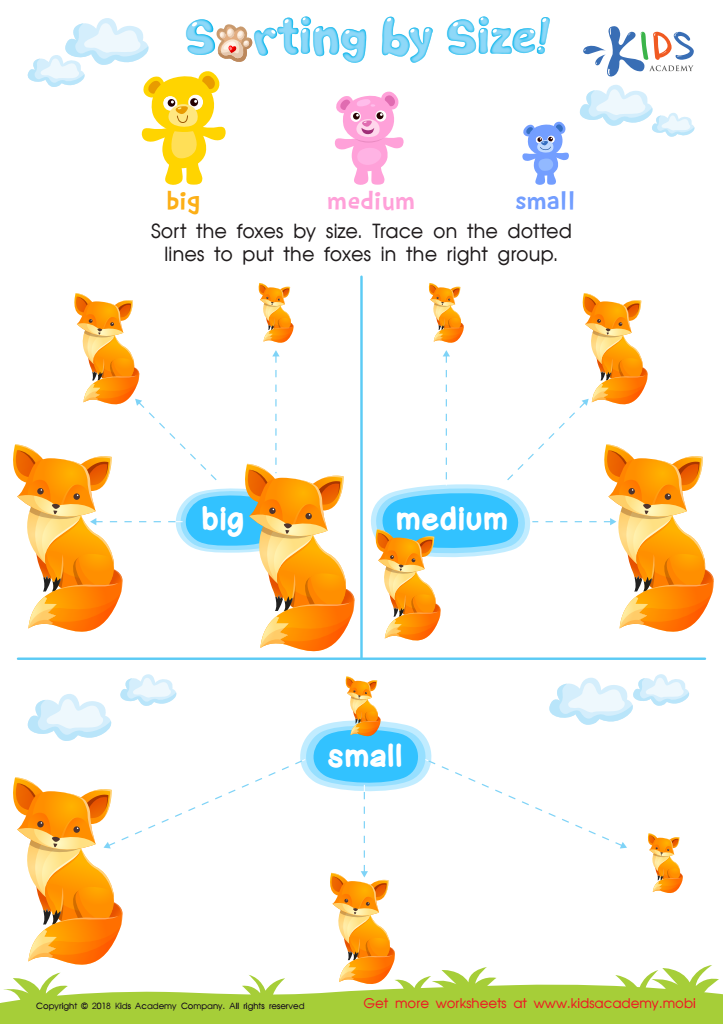

Sorting by Size Worksheet
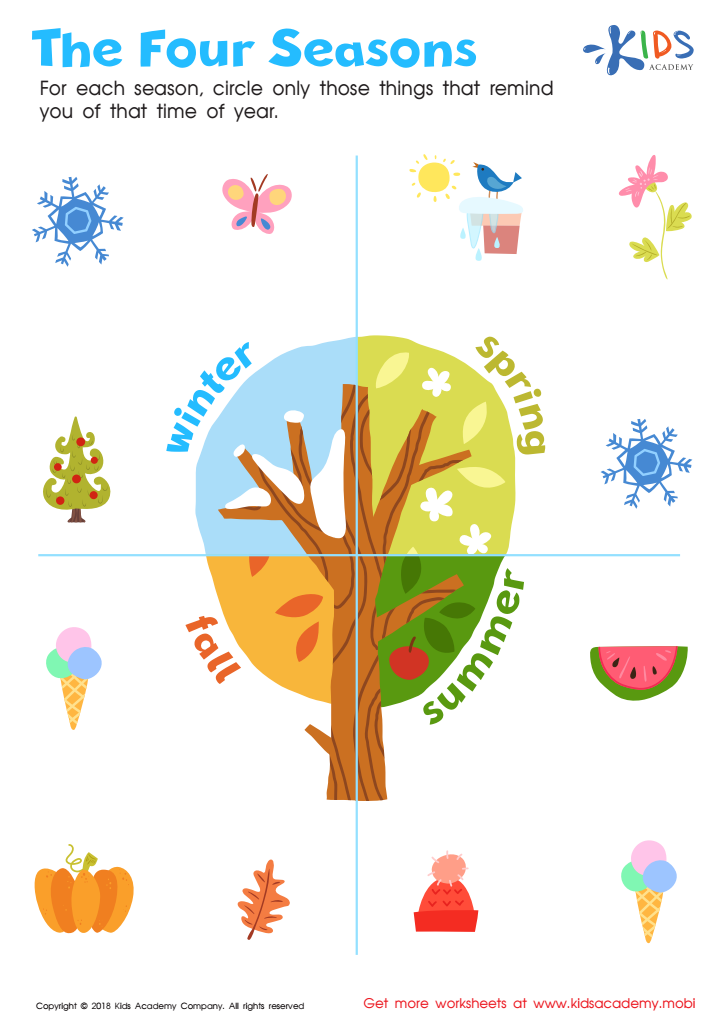

The Four Seasons Worksheet
Sorting skills are fundamental foundational math skills that should be prioritized by parents and teachers for children aged 3-4. At this developmental stage, kids are beginning to understand their world, seeking to categorize and make sense of new information. Engaging in sorting activities not only fosters early math proficiency but also enhances critical thinking and cognitive development.
When children sort objects based on attributes such as color, shape, or size, they begin to grasp important mathematical concepts like classification and organization. These sorting exercises lay the groundwork for more complex mathematical ideas later on, including patterns and problem-solving skills. By engaging in these simple activities, children also improve their fine motor skills and hand-eye coordination, as they learn to manipulate objects robustly.
Additionally, sorting helps in developing language skills, as kids learn to articulate their thought processes by describing their reasoning and the categories they create. This encourages effective communication and boosts confidence. Parents and teachers should therefore prioritize sorting activities, incorporating them into playtime and instructional methods, as they serve as a gateway to deeper mathematical understanding and cognitive growth in early childhood.
 Assign to My Students
Assign to My Students

